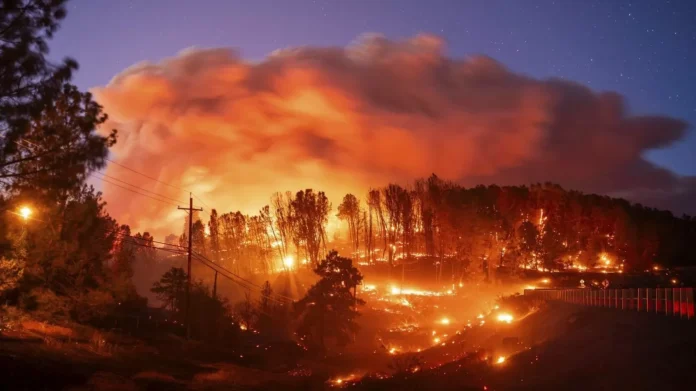Climate change is no longer a distant threat, it is a reality that we are facing on a daily basis. The rise in temperatures, changing weather patterns and increasing frequency of extreme weather events are all clear signs of the impact of climate change. However, it is not just the environment that is being affected by these changes. Recent studies have shown that cancer patients are also facing increased challenges due to these climate-induced weather extremes.
A new study has revealed that wildfires and other extreme weather events are posing a greater threat to cancer patients by shifting their treatment trajectories and access to care. The study, conducted by a team of scientists, found that patients recovering from lung cancer surgery within an active wildfire zone required longer hospital stays than those in areas that had no such blazes. This highlights the impact of climate change on not just the physical environment, but also on our health and well-being.
For cancer patients, having access to timely and effective treatment can make all the difference in their road to recovery. However, with increasing weather extremes, receiving the necessary treatment has become a challenge. In areas where wildfires are prevalent, hospitals may face power outages and other disruptions, making it difficult to provide uninterrupted care to patients. This not only delays their treatment but also puts their recovery at risk.
Furthermore, air quality is a major concern in areas affected by wildfires. Cancer patients are already more vulnerable to respiratory problems, and the smoke and ash from the fires can exacerbate their conditions. This not only affects their physical health but also adds to their emotional and mental stress as they worry about the impact on their recovery.
The study also highlighted the impact of other climate-induced weather extremes, such as hurricanes and floods, on cancer patients. These events not only disrupt the delivery of healthcare services but also pose a threat to patients’ access to care. For instance, during a hurricane, patients may have to travel long distances to reach a hospital or may not have access to necessary medication and treatments.
The findings of this study serve as a wake-up call for all of us. We cannot ignore the fact that climate change is affecting all aspects of our lives, including our health. As we continue to witness these extreme weather events, it is our responsibility to take action and mitigate the impact of climate change on vulnerable communities, such as cancer patients.
Governments and policymakers must prioritize addressing climate change and its effects on healthcare systems. This includes investing in resilient infrastructure, such as backup power systems for hospitals, and developing emergency response plans for extreme weather events. Additionally, there must be a focus on improving air quality in affected areas to protect the health of cancer patients and other vulnerable populations.
It is also crucial for healthcare institutions to have contingency plans in place to ensure uninterrupted care for cancer patients during weather emergencies. This may include relocating patients to safe areas or setting up temporary treatment facilities. Moreover, medical professionals must receive training and resources to educate patients on the potential risks and how to manage their conditions during these events.
As individuals, we can also play our part in mitigating the effects of climate change. By making small changes in our daily lives, such as reducing our carbon footprint and supporting sustainable practices, we can contribute to a healthier environment and a safer future for all.
The study’s findings are a reminder that climate change is not just an environmental issue, it is a human issue. We must take action now to protect our planet and the well-being of all its inhabitants, including cancer patients. Let us work together towards a more sustainable future, where no one’s access to quality healthcare is compromised by climate-induced weather extremes.

